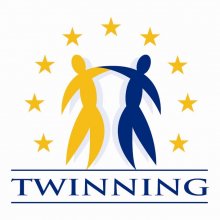15 years Twinning for Austria – since 2017 also in the Eastern Partnership
On 24 November 2017, the Heads of state/government from the EU Member States and the six Eastern partner countries gathered in Brussels for an Eastern Partnership Summit in order to take stock of achievements since the last summit two years ago and to consult on future cooperation until 2020. Forming part of the European Neighbourhood Policy (ENP), the Eastern Partnership (EaP) was launched in 2009 to promote political association and economic integration between the EU and the six countries Armenia, Azerbaijan, Belarus, Georgia, the Republic of Moldova and Ukraine. One of the EaP priority areas is the strengthening of good governance, rule of law and thus also of the compliance with human and fundamental rights.
The BIM – as part of the Ludwig Boltzmann Gesellschaft Austria’s largest human rights research, training and consulting institute and institutional bridge between research and practice – has been supporting these objectives since 2017 through its participation in two Twinning projects in Ukraine:
- Together with Lithuanian partners, it consults the Ukrainian Parliament Commissioner for Human Rights in order to ensure the effective prevention of human rights violations as well as efficient responses to any detected violations. Within this project, the BIM currently hosts a study visit of a Ukrainian delegation exchanging experiences with relevant Austrian and EU institutions for a week.
- Since summer 2017, the BIM has been contributing Austrian expertise to the Twinning project Strengthening the institutional capacity of the Supreme Court of Ukraine in the field of human rights protection at the national level, which the German Foundation for International Legal Cooperation implements as lead partner and which accompanies important measures in justice sector reform. Both projects are related to the EU-Ukraine Association Agreement, which came into full force in September 2017 and strongly aims at reinforcing rule of law and respect of human rights in Ukraine.
These current projects count under the 32 Twinning projects which the BIM has contributed to on behalf of Austria over the past 15 years in the fields of human rights, rule of law and democratisation. Having received the Twinning mandate by the European Commission in autumn 2002, we as Austrian body have so far been in the position to support partners in 16 enlargement resp. neighbourhood countries in legal and practical reform processes and institution-building. The topics ranged from anti-discrimination over data protection to human rights in the justice and police sector as well as prevention of human trafficking. You can find an overview of our various activities in the context of EU enlargement and the ENP on our website.
2017 saw the successful completion of two important Twinning projects:
- In June, the project Support to the advancement of human rights and zero tolerance to discrimination was formally closed in a high-ranking event in Belgrade. For almost two years numerous activities have been carried out together with the Serbian Office for Human and Minority Rights and the Commissioner for the Protection of Equality in order to improve the protection of human and minority rights and align it with EU standards. These included e.g. specific trainings for police and judiciary or the elaboration of an anti-discrimination code of conduct for employers.
- In September the closing event of the project Strengthening the capacities of the Interministerial Delegation for Human Rights (DIDH) in Morocco took place. The project accompanied the transformation of the DIDH into a Ministry of State for Human Rights by providing Spanish, French and Austrian expertise. For the BIM this was the first Twinning project in Morocco and an important expansion of our activities to the southern neighbourhood – which also received very valuable support by the Austrian embassy in Rabat. The closing ceremony highlighted, in addition to the concrete project results, the sustainability effects of the experienced dialogue and mutual learning. These aspects of the Twinning instrument fully match with the human rights based approach the BIM applies to all its activities.
- At the end of November our second Twinning in Morocco Strengthening the capacities of the National Human Rights Council, to which the BIM significantly contributed in the field of training, has also been completed. Both projects were implemented in the framework of a special programme with which the EU provided particular support for human rights reforms in Morocco from 2012 on.
Generally speaking, EU foreign policy at large as well as enlargement policy and ENP in particular are marked by efforts for a stronger strategic promotion of human rights, rule of law and democratisation over the last years. We observe these developments with much interest, yet find major challenges for a coherent policy in view of opposite trends within the Union. The relevance of the EU as a human rights actor relies heavily on its credibility and is shaped by political decisions of the Member States. Taking the Presidency of Council of the EU in July 2018, Austria has – in the common Trio Programme with Estonia and Bulgaria – identified the respect for the rule of law in all Member States as well as its strengthening in the Western Balkan and neighbouring countries as areas of particular attention.
We as BIM would like to keep providing our expertise for change processes which intend to achieve „all human rights for all“ and to entrench the understanding of state institutions as duty-bearers in this regard. A functioning legal and judicial system as well as an accountable public administration are indispensable for the realisation of human rights – as has also been emphasized in the 20 deliverables for 2020 under the Eastern Partnership, which constitutes the guiding document for the summit on 24 November.
[Please find the relevant newsletter of the Ludwig Boltzmann Institute of Fundamental and Human Rights here.]
